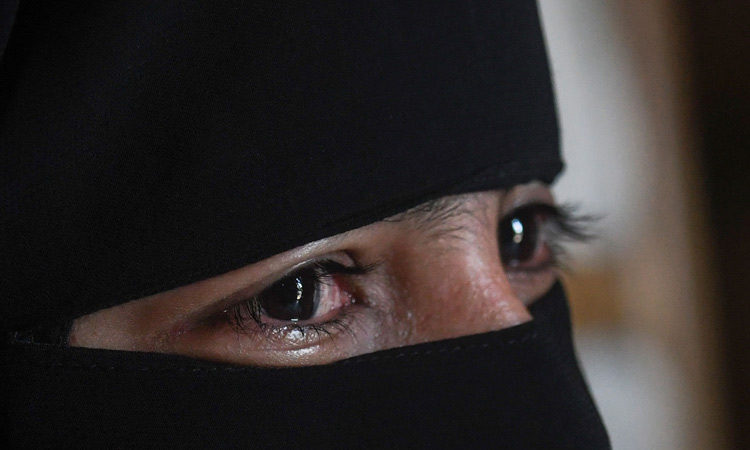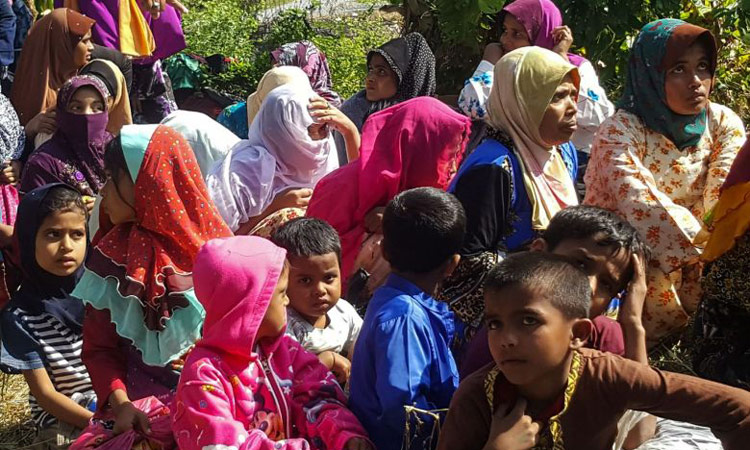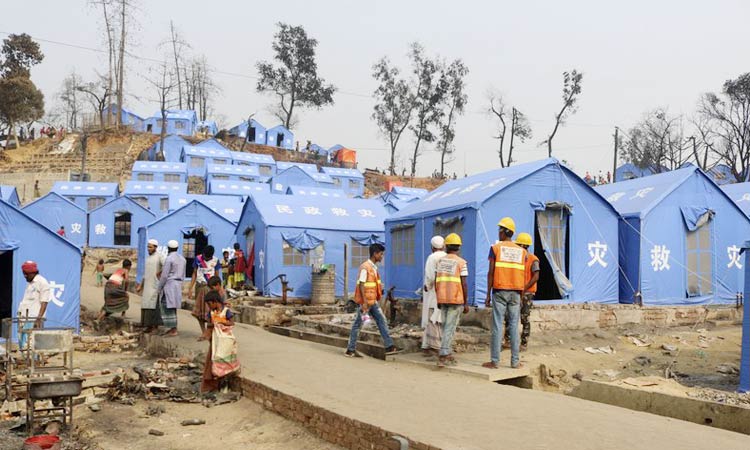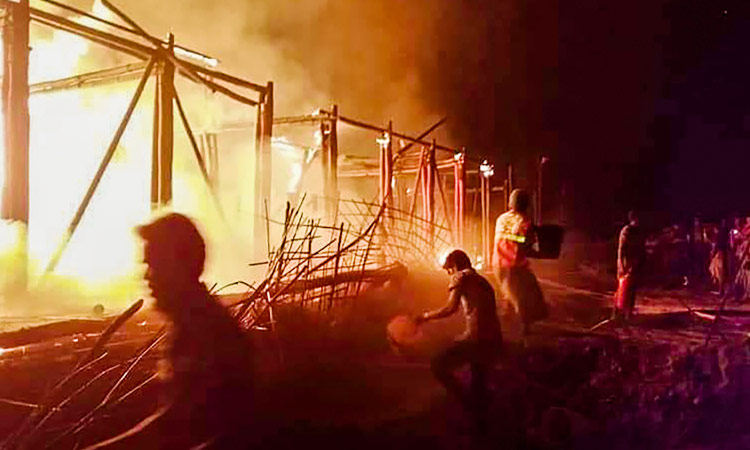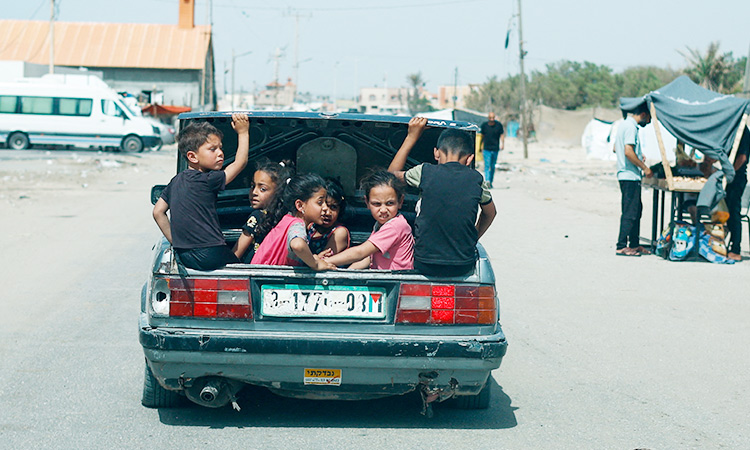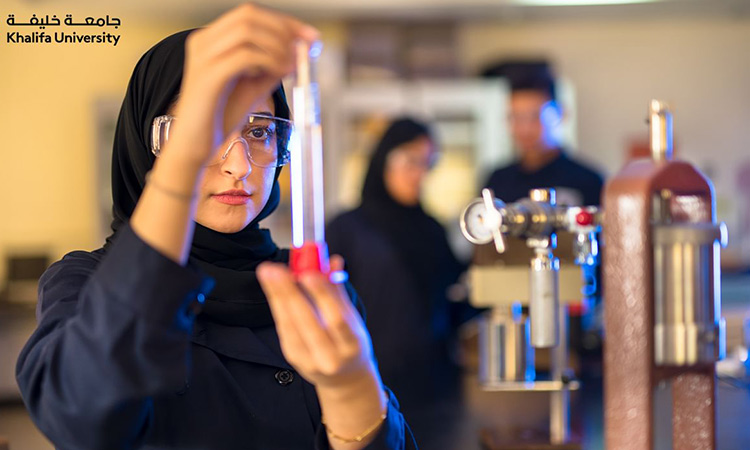Second group of 41 Rohingya arrives in Malaysia: Officials
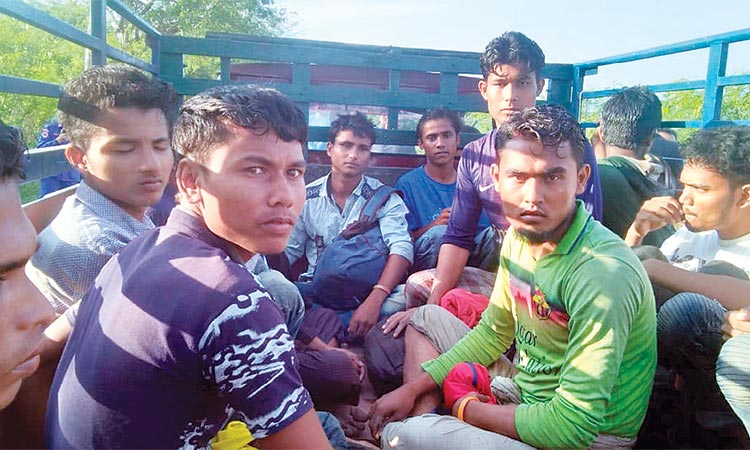
Dozens of Rohingya Muslims sit on a truck before being taken to a police station near Sungai Belati, Malaysia. Associated Press
Many Rohingya have been seeking in recent weeks to leave by sea from Bangladesh − where they live in squalid refugee camps after fleeing their mostly Buddhist homeland Myanmar − before the monsoon season starts in earnest.
Security forces have prevented hundreds from departing for Malaysia with people smugglers on fishing boats.
But last month 34 Rohingya arrived in the northern Malaysian state of Perlis, the first group believed to have landed in the country in almost year.
On Monday police detained 41 Rohingya men − aged 14 to 30 − who arrived by sea in the same area the last boatload landed, and are hunting for another six believed to have come ashore, local police chief Noor Mushar Mohamad told reporters.
About 200 more are thought to be trapped at sea in Thai waters, said the police chief, citing testimony from migrants. “This is definitely the work of human smuggling syndicates working with local syndicates,” he said.
“I fear there could be more Rohingya arrivals unless maritime enforcement agencies step up patrols urgently.”
Noor Mushar said initial investigations indicated those who came ashore travelled in a large boat before being transferred to smaller craft by local criminal gangs and ferried ashore.
According to testimony from one migrant, the Rohingya paid 4,000 ringgit ($975) each, and were dropped off a short distance from the coast and walked to shore, he said.
The 41 detained have been handed over to immigration authorities, he said.
The group had been travelling with hundreds of other Rohingyas on a larger boat before they were transferred to smaller, crowded vessels in Thai waters, he said.
“Since there was no one to greet them, they made their way in separate groups to the nearby villages, covered in mud,” he said, adding they were in good health despite their ordeal.
It was not clear whether they had departed from Bangladesh or Myanmar, or when they had arrived.
The traditional route to Malaysia is by boat from Myanmar or Bangladesh. Refugees arrive either in Thailand and head overland to Malaysia, or arrive directly in Malaysia.
But arrivals have fallen markedly since 2015 when Thailand launched a crackdown, which disrupted the lucrative trade and led to smugglers abandoning huge numbers of refugees at sea.
Relatively affluent, Muslim-majority Malaysia has long been a favourite destination for Rohingya, where they are a source of labour in low-paying industries such as agriculture and construction.
More than 700,000 Rohingya crossed into Bangladesh in 2017 fleeing an army crackdown in Myanmar’s Rakhine state, according to UN agencies.
Myanmar regards Rohingya as illegal migrants from the Indian subcontinent and has confined tens of thousands to sprawling camps in Rakhine since violence swept the area in 2012.
The unrest prompted tens of thousands of Rohingya to flee Myanmar by sea. The exodus peaked in 2015, when an estimated 25,000 people crossed the Andaman Sea for Thailand, Malaysia and Indonesia, many drowning in unsafe and overloaded boats.
Bangladesh on Sunday deployed heavily-armed border guards to an island near its southern border with Myanmar for the first time in 20 years, officials said. Border Guard Bangladesh (BGB) distributed images showing dozens of troops carrying assault rifles disembarking at Saint Martin’s island, a small island in the Bay of Bengal that has caused diplomatic tensions between the neighbours.
The BGB said the troop deployment was part of “regular activities” to ensure border protection and curb drug trafficking.
But the force’s lieutenant colonel, Sarker Mohammad Mustafizur Rahman, told AFP it was the first time since 1997 their men had landed there.
“After more than 20 years we felt we should deploy,” he said.
The deployment comes just two months after Bangladesh’s foreign ministry summoned Myanmar’s ambassador in Dhaka to protest the inclusion of Saint Martin inside their territory in some maps printed inside the Southeast Asian country.
Agencies
